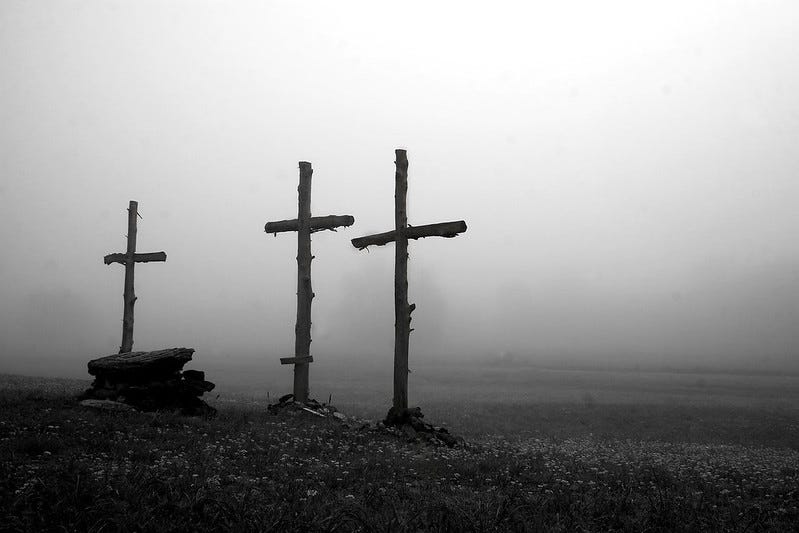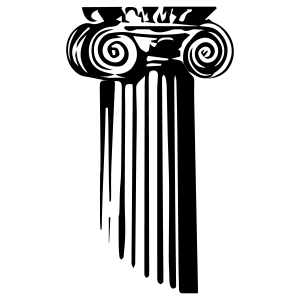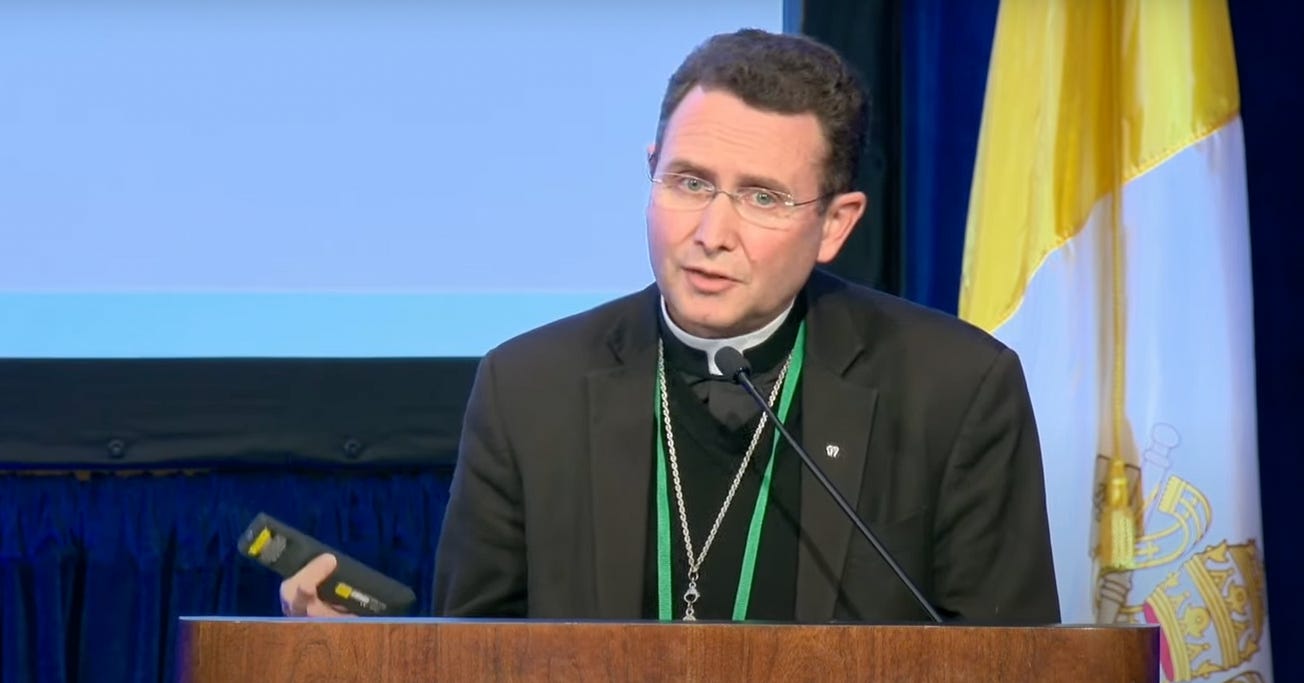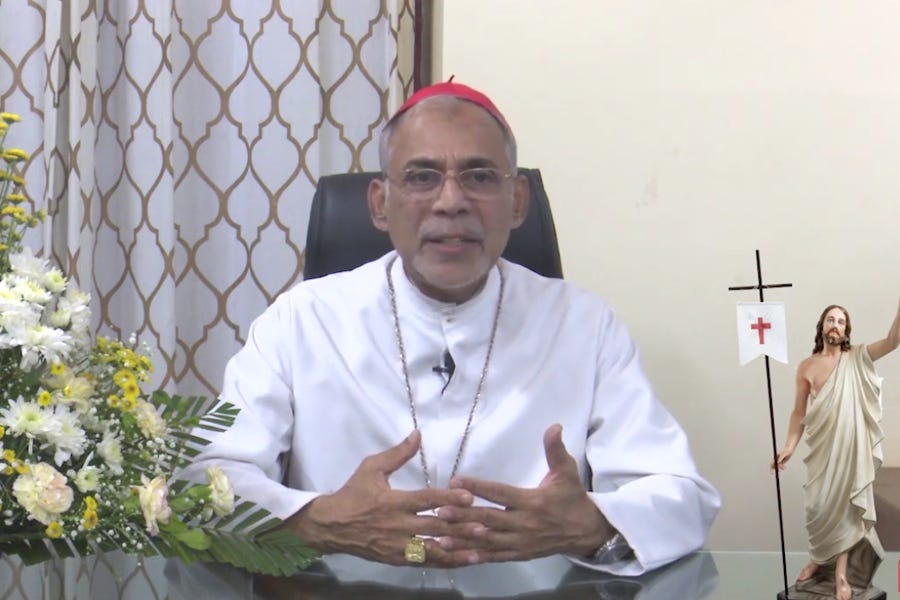Happy Good Friday friends,
My landlord is due to come over presently. He’s bringing a contractor to assess some things which need doing around the house. I mention this because when he asked if he could come by “next Friday,” I was shocked. Who would do something so mundane, so utterly lacking in urgency, on the day that the savior mounted the cross for our redemption?
To be clear: I wasn’t outraged, or resentful — it doesn’t interrupt my plans for the day at all. I was just, well, baffled. I shouldn’t have been, of course. My landlord is a very nice guy, we get along just fine, but he’s never given any overt or implied indications of religious observance.
It was a pointed reminder to me that the very nature and fact of it being Good Friday is simply unknown to a perhaps surprising number of people in my daily orbit. I need to be aware of that.
I tend to live Easter in something of a bubble. From Thursday evening until midmorning Sunday I have a fairly full schedule of liturgies or times of prayer that I stick to, year-in year-out. The people I see and talk to over the Triduum tend to be living the days in a similar way. It’s reassuring, and at a practical level it helps sustain my focus.
But outside of that enclave - and enclaves like it - is a world which very clearly knows not the good news. I need to remember that when Pope Francis speaks of going “to the peripheries” to announce Christ, very often the peripheries are standing up a ladder in my driveway inspecting the gutters.
To the extent that our society, which is manifestly not “Christian” in its laws or its culture, however casually it may be referred to as such, understands the event of the cross at all, I think that understanding is limited to a kind of iconography of suffering mixed with the placation of an otherwise implacable God. But this is neither the truth or the good news I’m called to announce.
The good news of the Triduum, at least as it was announced to me, is that I am loved. Loved by God in such a passionate, unconditional, unsparing way, to a magnitude so out of all proportion to my merits, and heedless of my far more plentiful sins, that the only logical expression is that He died for me. That this love for me was enacted on Calvary, on this day, but also again in every Mass celebrated, and in every moment in which the cross enters my own life, too.
Most important, it is a love so cosmic in scope that it shatters death - my death - and holds out the promise of love, and life, without end. That is the good news I will receive again this weekend, and it’s the good news I am impelled to share for the rest of the year thereafter.
—
The scandal of the cross, the scandal of suffering — especially innocent suffering — is no less shocking to the world today than it was two millennia ago. And in the shadow of the cross, a grieving mother can glimpse eternal life.
This was the case for Megan Haas.
Her story of conversion is the story of a mother’s grief, of Providence, and of the communion of the saints. She and her husband Mark, who was raised Catholic but drifted out of regular practice, found faith and the Church in the midst of personal pain.
The Haas family lived through the trauma of three miscarried pregnancies in a year. It was a profound experience of the cross, but one few people outside the Church seemed able to acknowledge, let alone understand. A crucial moment for them was finding a group that arranged for the burial of miscarried children, run by their local Catholic cemetery.
“There were probably a dozen families there,” Megan remembered. “And, for me, being with those other women, that I’ll never see again, but we were all there in that moment. It was God working in that.”
“We were all just weeping and weeping together. And it was really special, because, [elsewhere] people kept saying they were sorry I was sick. Or that they hoped I would feel better. But very few people acknowledged that I had lost a baby. And so being in a place where we talked about my baby — and the deacon who did the service talked about these babies being called back by God, and that your baby is in heaven.”
It is a powerful story of death, grief, faith, and new life. Read the whole thing.
—
—
On a more international scale, the suffering of the people of Ukraine is a powerful reminder that sin and darkness remain in need of dispelling in our world. The scandal of that suffering is rendered all the more acute, in the eyes of many, myself included, by Russian Orthodox Patriarch Kirill’s attempts to cloak the Russian invasion in the language of Christianity.
I’ve myself remained bullish on the prospects of a second Francis-Kirill meeting ever since the invasion began nearly two months ago. It seems to me that an isolated Kirill would seize anything which could shore up his legitimacy, and the pope’s own preference is always to go to the margins — and they don’t come much more marginalized than the Russian patriarch right now.
But that doesn’t mean the meeting isn’t a gamble for Francis. Kirill is not the kind to take an admonition from the Bishop of Rome, or to give an inch where it concerns his own primacy. Getting the meeting might prove a lot easier for the pope than getting anything worthwhile out of it.
The risk for Francis is that a meeting achieves nothing more than a fraternal exchange of greetings, and an agreement to disagree about the invasion of Ukraine. In that event, a photo op for Kirill with the pope would be a big win for the Russian, and could be seen by many, not least in Ukraine, as Francis equivocating on what many Christians, including other Orthodox patriarchs, consider to be Kirill’s blasphemous support for the war.
You can read my whole analysis here.
—
On this Good Friday, it bears repeating what we were told by a Dominican priest there:
“When we talk about Bucha, we must say that Christ was raped, Christ was killed, Christ was deprived of his home, his hands were tied, and he was shot. All this was done to those with whom Christ identifies himself.”
“It must be said that God is being crucified again, tortured again. Christ does not say that this applies only to those who believe in Him. He is talking about defenseless people.”
—
If you spend any amount of time online or otherwise near it, you’ve probably heard of this thing called integralism. Depending on whom you ask, it’s an idea, an argument, even a program for rethinking the relationships between faith and public affairs or Church and state.
But understanding the ideas and the arguments can be a challenge, not least because most discussion of it on social media tends to be pretty personality focused, and personality driven.
If you’re looking for an honest discussion of ideas, away from the pettiness of Twitter ego feuds, this is it.
—
—
If you are, by chance, reading this newsletter on Holy Saturday and getting ready for the Easter Vigil, don’t miss our explainer to help you brush up on your holy bonfires, liturgical candles, and incense push pins.
It’s the biggest night of the year, so don’t miss a detail.
—
And if you’re looking for something to read in between preparations to celebrate the resurrection, last year for Holy Week we spoke to a priest and seminary rector in Galilee about what Easter is like in the places where it all actually happened, and what it means for the Christians of the Holy Land who are a minority within a minority.
—
And if it is Holy Saturday by the time you read this, I hope it is full of anticipation for you. I’ve always found the quiet, looming intensity extremely affecting; sitting in the eye of the cosmic storm of salvation, waiting for the dawn to break.
I also think the reading from this morning’s Office of Readings may be one of my favorite pieces of writing in the whole breviary — and we don’t even know who wrote it.
Something strange is happening – there is a great silence on earth today, a great silence and stillness. The whole earth keeps silence because the King is asleep. The earth trembled and is still because God has fallen asleep in the flesh and he has raised up all who have slept ever since the world began.
God has died in the flesh and Hell trembles in fear.
He has gone to search for our first parent, as for a lost sheep. Greatly desiring to visit those who live in darkness and in the shadow of death, he has gone to free from sorrow the captives Adam and Eve, he who is both God and the son of Eve. The Lord approached them bearing the cross, the weapon that had won him the victory. At the sight of him Adam, the first man he had created, struck his breast in terror and cried out to everyone: “My Lord be with you all.” Christ answered him: “And with your spirit.”
He took him by the hand and raised him up, saying: “Awake, O sleeper, and rise from the dead, and Christ will give you light.”
I am your God, who for your sake have become your son. Out of love for you and for your descendants I now, by my own authority, command all who are held in bondage to come forth, all who are in darkness to be enlightened, all who are sleeping to arise.
I order you, O sleeper, to awake. I did not create you to be held a prisoner in Hell.
Rise from the dead, for I am the life of the dead.
Rise up, work of my hands, you who were created in my image.
Rise, let us leave this place, for you are in me and I am in you; together we form only one person and we cannot be separated.
For your sake I, your God, became your son; I, the Lord, took the form of a slave; I, whose home is above the heavens, descended to the earth and beneath the earth. For your sake, for the sake of man, I became like a man without help, free among the dead. For the sake of you, who left a garden, I was betrayed in a garden, and I was crucified in a garden.
See on my face the spittle I received in order to restore to you the life I once breathed into you.
See there the marks of the blows I received in order to refashion your warped nature in my image.
See on my back the marks of the scourging I endured to remove the burden of sin that weighs upon your back.
See my hands, nailed firmly to a tree, for you who once wickedly stretched out your hand to a tree.
I slept on the cross and a sword pierced my side for you who slept in paradise and brought forth Eve from your side. My side has healed the pain in yours. My sleep will rouse you from your sleep in hell. The sword that pierced me has sheathed the sword that was turned against you.
Rise, let us leave this place. The enemy led you out of the earthly paradise. I will not restore you to that paradise, but I will enthrone you in heaven. I forbade you the tree that was only a symbol of life, but see, I who am life itself am now one with you. I appointed cherubim to guard you as slaves are guarded, but now I make them worship you as God.
The throne formed by cherubim awaits you, its bearers swift and eager. The bridal chamber is adorned, the banquet is ready, the eternal dwelling places are prepared, the treasure houses of all good things lie open.
The kingdom of heaven has been prepared for you from all eternity.
I’ll leave you with that, and see you next week. Maranatha!
Ed. Condon
Editor
The Pillar






